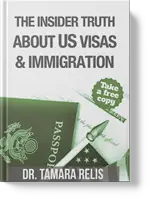
A fairly common self-petitioning visa used by certain entrepreneurs and higher-level employees to live and work in the U.S. is the E-visa. E-visas are further broken down into E-1, E-2, and E-3 categories. The first preference, E-1, is reserved for nationals of countries with which the U.S. has a commerce treaty or other agreement that allows for a free flow of goods and services between the two countries.
General Requirements for E-1 Visa Holders
After confirming that you are a national of a country with which the U.S. conducts trade of products and services, you must affirm that you actually engage in substantial trade. International banking, tourism, technology, and transportation are several industries that include items of substantial trade. There is not a value threshold you must meet in order to be successful in your application, but it might help if you engage in exchanges of great value.
Employees of treaty traders are also eligible for E-1 visas. E-1 employees must have some supervisory power within the trading organization. If the applicant does not act in a supervisory capacity, he or she must have skills that are essential to the operation. Additionally, the employee must be of the same nationality as the principal employer. One aspect of the E-1 visa that’s attractive for applicants is the ability to self-petition. In other words, you do not have to rely on your employer to begin the process of applying for an E-1 visa.
E-1 Visa is a Nonimmigrant Visa
Unfortunately, this means that E-1 visa holders are not permitted to apply for a change in status to permanent residency. If you are in the U.S. through an E-1 visa, you must go back to your home country and apply for an immigrant visa. You may, however, apply to change your status to an E-1 visa holder if you are presently in the U.S. on another visa.
Your Family Can Come
Your spouse and children under the age of 21 may come with you if you obtain an E-1 visa. During your stay, your spouse may work after getting a work permit. They are generally permitted to stay as long as you are permitted to stay, which is in two-year increments. You can file for extensions as many times as you like.
Conclusion
Established traders or essential employees could make use of the E-1 visa to temporarily stay in the U.S. and conduct substantial trade. While there are certain limitations on the E-1 visa, it is a great option for many foreign nationals. To make sure the application process goes smoothly, contact an experienced immigration law firm like RelisLaw to help you navigate everything. You may contact our legal team here to set up a free 10-minute call today.
RelisLaw
Latest posts by RelisLaw (see all)
- Protect Your American Dream: Your Legal Shield in the New Immigration Era - January 23, 2025



